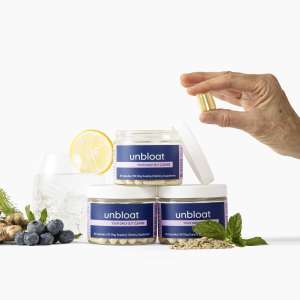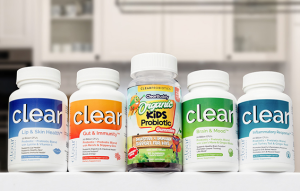Table of Contents
ToggleAre Cooled Probiotics Superior?
When it comes to probiotics, there is often a debate about whether refrigerated probiotics are better than their non-refrigerated counterparts.
The truth is, it depends on the specific strain and brand of probiotic you are using.
Refrigerated probiotics are typically recommended because they contain live bacteria cultures that can be sensitive to temperature changes.
These cultures can die off if exposed to heat for prolonged periods which may affect the effectiveness of the probiotic. Refrigeration helps maintain the viability of these live cultures by keeping them in a stable environment.

Seek a Less Heat-Sensitive Substitute
While refrigerated probiotics are known for their efficacy, they can be quite challenging to transport without compromising their potency.
Luckily, there are some probiotic options available on the market that are more resilient to temperature fluctuations.
One of the best alternatives for travelers is shelf-stable probiotics. These types of probiotics do not require refrigeration and can withstand various temperatures without losing their effectiveness.
Look for high-quality brands that have been specifically formulated to survive harsh conditions, such as heat and humidity.
Some of the best shelf-stable probiotics for travel include lactobacillus acidophilus, bifidobacterium lactis, and Saccharomyces boulardii.
By opting for a less temperature-sensitive alternative like shelf-stable or encapsulated probiotics, you can enjoy the benefits of these beneficial bacteria on your travels without constantly stressing about refrigeration requirements.
Opt for an Insulated Container
These containers are specially designed to maintain a stable temperature, keeping your precious probiotics safe and sound. The key is to find the right size and type of insulated container that suits your needs.
Consider the size of your probiotic bottle or packaging. Look for an insulated container that fits it snugly, as this will help prevent any unnecessary movement that might compromise the integrity of the product.
Pro Tip: Try to go for an insulated container with a lid that provides a tight seal to ensure minimal air exchange.
Next, think about the material of the container itself.
Insulated containers made from high-quality materials like stainless steel or BPA-free plastic are generally excellent options as they provide better insulation than regular containers.
Stainless steel containers are especially durable and can withstand rough handling during travel.
Pro Tip: To maximize the effectiveness of your insulated container, it’s advisable to pre-chill it before placing your probiotics inside. This step will help maintain cooler temperatures for longer periods.
If you have limited space in your luggage, consider collapsible or foldable insulated containers; they offer convenience while still providing adequate insulation.
By utilizing an appropriate insulated container for your best probiotics for travel needs, you’ll significantly increase their chances of remaining viable throughout your journey.
Shield Probiotics from Humidity
Excessive moisture in the air can degrade the quality and potency of your delicate supplements, rendering them less effective.
Invest in high-quality packaging for your probiotics that provides reliable moisture protection.
Look for bottles or blister packs made from materials that have excellent moisture resistance properties, such as dark amber glass or opaque plastic. These types of packaging help shield the probiotics from direct exposure to light and humidity.
Make sure the lids or caps are tightly sealed to prevent any water vapor from entering the container.
Consider using desiccant packets or moisture-absorbing sachets inside the container holding your probiotics. These small packets contain substances like silica gel or clay that absorb excess moisture and keep it away from sensitive supplements.
Avoid placing them near sources of humidity such as bathroom sinks or showers.
Instead, choose a cool and dry location inside your bag or suitcase where they won’t be exposed to any accidental spills or dampness.

Avoid Decanting Probiotics
Probiotics are delicate microorganisms that require a stable environment to survive and remain effective.
The original packaging of probiotics is carefully designed to protect the live bacteria from external factors. It ensures that the probiotics remain sealed and protected from air, light, humidity, and temperature fluctuations.
Transferring them from their original packaging can expose them to air and moisture, which can compromise their potency.
When you decant your probiotics into another container, you risk introducing contaminants and disrupting this delicate balance.
By keeping your probiotics in their original packaging, you minimize the risk of compromising their effectiveness and ensure that you’re getting the best probiotics for your health needs throughout your journey.
Minimize Travel Risks
Always check the regulations and restrictions regarding the transportation of perishable items.
Different countries and airlines may have specific guidelines in place, so make sure you are aware of them before embarking on your journey.
Another risk to avoid is exposing your probiotics to extreme temperatures.
While refrigerated probiotics are well-known for their efficacy, they can still be susceptible to heat damage during transportation. To minimize this risk, consider using a portable cooler or insulated bag specifically designed for keeping items at a stable temperature.
While going through X-ray machines should generally pose no harm to your sensitive probiotics, it’s better to inform security personnel about the nature of your items beforehand.
Opting for direct flights or non-stop journeys can significantly reduce the exposure time of your supplements to potentially damaging conditions such as high temperatures or excessive vibrations during transit.
By avoiding unnecessary risks and planning ahead, you can ensure that your sensitive probiotics remain effective throughout your travels and continue providing you with optimal health benefits wherever you go.
Conclusion
Traveling with sensitive probiotics can be a manageable task if you take the proper precautions.
By understanding the nature of refrigerated probiotics and exploring less temperature-sensitive alternatives, you can ensure the efficacy of your supplements even on the go.
By following these guidelines and adopting a proactive approach towards caring for your sensitive probiotics on the go, you can enjoy the benefits they provide without worrying about their potency diminishing.
Embrace a healthy lifestyle for overall well-being. Plan carefully when traveling to maintain gut health.













